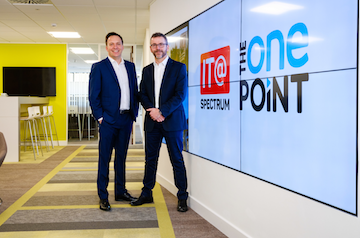Following news of Simplivity's £521m acquisition by HPE, HyperGrid has broken cover to claim that, on the back of the deal, enterprise IT will evolve from services delivery to value creation.
According to HPE the purchase of Simplivity 'advances HPE's strategy in the fast-growing, high-margin HCI market'.
While spending on HCI is growing fast, HCI will increasingly be viewed as a use case (specifically for VMs as a service) rather than a market, reckons HyperGrid.
According to Manoj Nair, Chief Product Officer at HyperGrid, to evolve quickly from services delivery to value creation, businesses need to simultaneously deliver a broad set of services for legacy applications, enable application modernisation where possible, and provide modern application management for developers without disruption or overhead and do all this in a way that's agile, flexible and on-demand with security, control and governance.
"This shift will be driven by customers demanding integration of additional, higher layers of the stack, and innovative vendors responding to that demand with offers that support HCI as a use case, but deliver public cloud services in their data centres that include infrastructure, platform, and application management services," he stated.
"It is important for vendors to help CIOs and IT practitioners leapfrog from simply delivering services to creating business value by enabling business innovation while maintaining security, control and governance over delivery of IT services.
"Like HCI, we see public cloud as a partial solution to customer challenges. There are significant problems due to shadow IT owing to lack of control and governance, risk of cloud lock-in and poor support beyond VM-based computing. Enterprises are looking for an integrated and expanded IT solution that goes beyond HCI and public cloud options.
"This broader dynamic in IT is driving this vision of Enterprise Cloud Services, which deliver a public cloud-like services in the customer data centre.
"IT teams deploying Enterprise Cloud Services can better support overall business innovation and success through fast and flexible deployment of new and existing applications on the most efficient delivery platforms.
"The shift away from do-it-yourself approach to service delivery and higher-value added activities minimises the need for IT to perpetually focus on building, integrating, optimising, maintaining and refreshing many point solutions from multiple vendors that make up their services stack."

 Partner companies
Partner companies